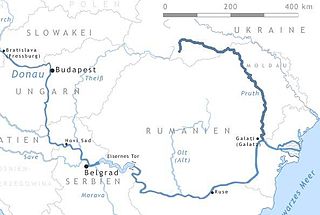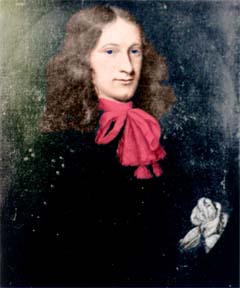
1711 (MDCCXI) was a common year starting on Thursday of the Gregorian calendar and a common year starting on Monday of the Julian calendar, the 1711th year of the Common Era (CE) and Anno Domini (AD) designations, the 711th year of the 2nd millennium, the 11th year of the 18th century, and the 2nd year of the 1710s decade. As of the start of 1711, the Gregorian calendar was 11 days ahead of the Julian calendar, which remained in localized use until 1923. In the Swedish calendar it was a common year starting on Sunday, one day ahead of the Julian and ten days behind the Gregorian calendar.

Zaanstad[ˈzaːnstɑt](listen) is a Dutch municipality in the province of North Holland, situated northwest of Amsterdam. Its main city is Zaandam. It is part of the conurbation and metropolitan area of Amsterdam. It had a population of 154,442 in 2017.

Philips of Marnix, Lord of Saint-Aldegonde, Lord of West-Souburg was a Flemish and Dutch writer and statesman, and the probable author of the text of the Dutch national anthem, the Wilhelmus.
Niels is a male given name, equivalent to Nicholas, which is common in Denmark, Norway (formerly) and the Netherlands. The Norwegian and Swedish variant is Nils. The name is a developed short form of Nicholas or Greek Nicolaos after Saint Nicholas. Its pet form is Nisse, and female variants are Nielsine, Nielsina, and Nielsa. Niels may refer to:
The masculine given name Sander is a variant of Alexander, mostly used in the Dutch-speaking areas of Europe though also to a lesser extent in Scandinavia and Estonia. The feminine version is Sandra; there is another masculine version in some countries: Sandro.
Franciscus is a Latin given name, originally an epithet meaning "the Frank, the Frenchman". It was applied to Saint Francis of Assisi (1181/82–1226). Francis had been baptized Giovanni (John); his father was Italian and his mother Provençale ; his father was on business in France when he was born, and when he returned to Assisi, he began to call his son by the nickname Francesco, in the opinion of G. K. Chesterton possibly because out of a general enthusiasm for all things French, or because of his commercial success in France. After the canonization of Saint Francis of Assisi in 1228, the custom of naming children after saints led to the popularization of Franciscus as a given name. In the vernaculars of western Europe, the name diversified into the forms Francesco (Italian), Francisco, Francesc (Catalan), François, Franz ; besides Frans, the Latin form remains commonly given in Dutch.
Van Leeuwen is a Dutch toponymic surname meaning "from Leeuwen". In 2007, nearly 28,000 people in the Netherlands carried the name, making it the 18th most common name there.. There are two places named Leeuwen in Gelderland and two in Limburg. Considering the frequency of the name and the small size of these places, it has been speculated that people from the city of Leuven may have come to be called "van Leeuwen" as well. Although translated as "lions" in modern Dutch, the place name may be explained originating from Germanic hlaiw, meaning (burial) mound. The name appeared in records since the 13th-century in South Holland. People with this surname include:
Albertus is a given name. Notable people with the name include:
Wilhelmus Wilhelmius (1720–1771) was a Dutch minister, mathematician and philosopher.
Jacobus is a masculine first name, which is a variant of Jacob, Jack and James. The name may refer to:
Henricus is a given name. People with the name include:
Jäger is a common German surname. It comes from the German word for "hunter". Related surnames in other languages include De Jager, Jääger, Jágr, and Yeager.
Van Royen or Van Roijen is a Dutch toponymic surname. "Rooij" or "Roij" was a local term for many towns ending with "rode" or "roij", like Nistelrode, Sint-Oedenrode, Stramproy and Wanroij. This suffix itself means "a clearing made by men". Though not a common name anymore, there are three unrelated patrician families Van Roijen/Van Royen in the Netherlands, which produced many academics and administrators. Notable people with the surname include:
This page is based on this
Wikipedia article Text is available under the
CC BY-SA 4.0 license; additional terms may apply.
Images, videos and audio are available under their respective licenses.






